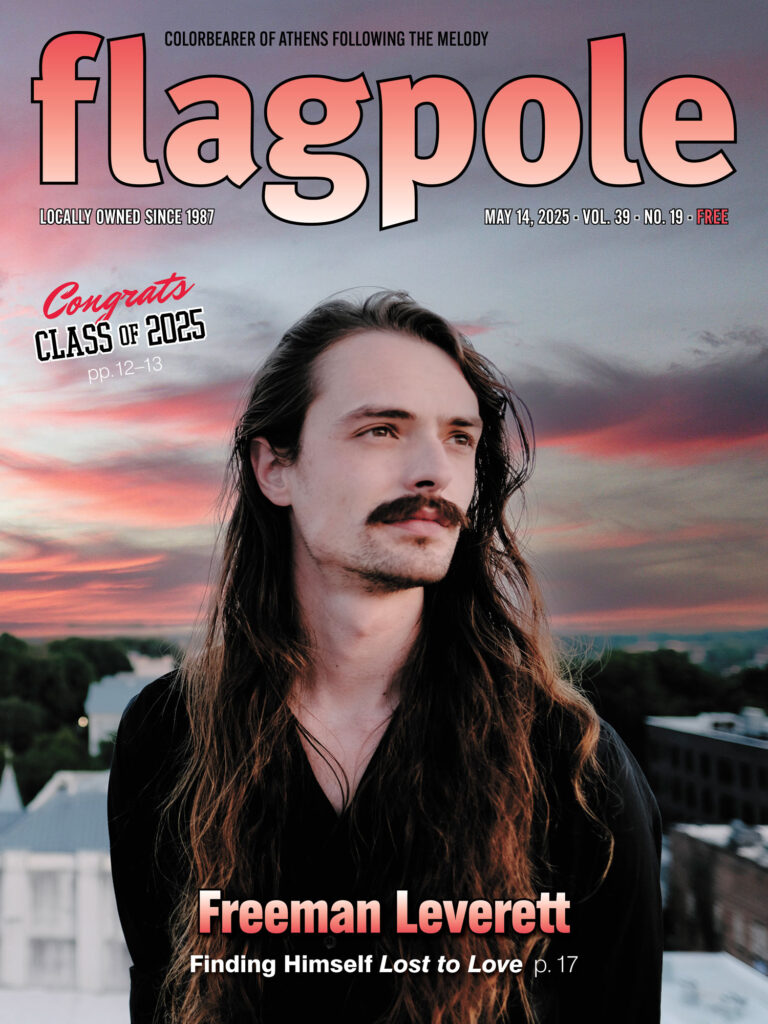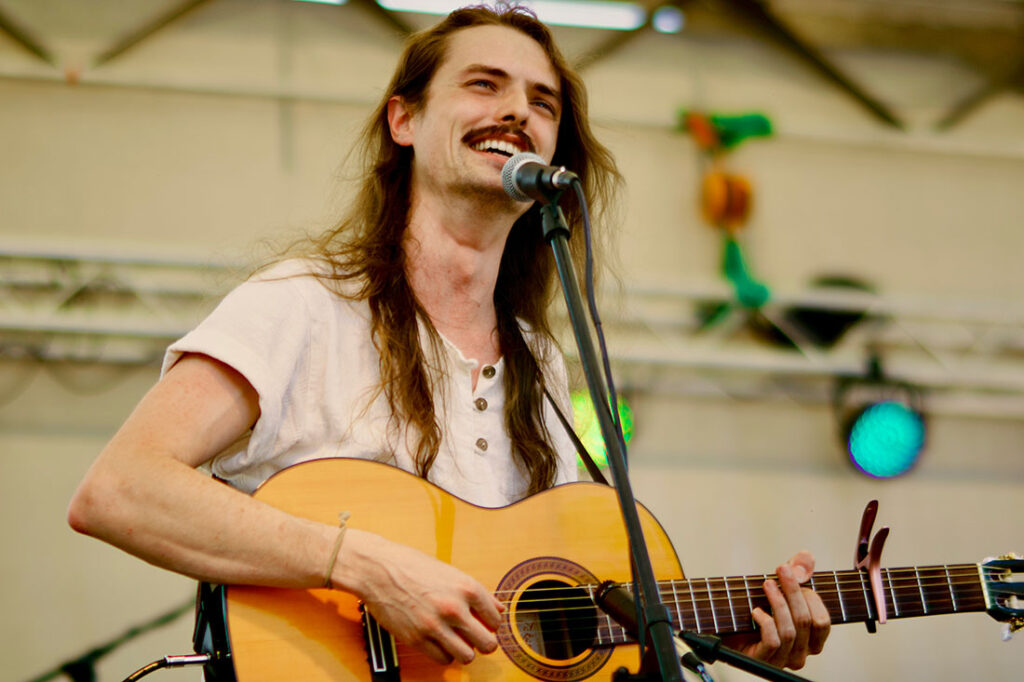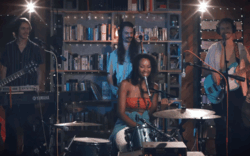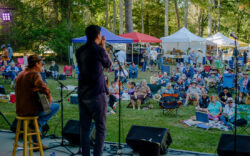The human experience is marked by the depth and breadth of its emotions, an experience often hard to fully capture with words—which is why we have music. Speaking to multi-instrumentalist and composer Freeman Leverett, it’s clear his musical journey is one of translating feeling through song, but also exploring how it connects us as people and to something larger than ourself.
Leverett’s debut album, Lost to Love, has a strong ‘70s folk and pop rock sound right at home with the likes of Jackson Browne, Gordon Lightfoot and Jim Croce. Although it’s saturated with the word “love,” Leverett explains the use of the word and accompanying lyrics are an intentionally vague placeholder for a feeling of connectedness. The lyrics are part prayer and part love song, he says, and in the face of hardship, despair and grief it can be difficult to express the feelings of beauty of our shared existence. But this is an attempt.
Always starting with the melody first, he explains the process of adding words to his songs feels like it narrows the scope of what someone can get out of their listening experience. So the vocal parts are intentionally simplistic in balance with the more complex instrumental foundation.
“The single most important thing for a song, to me, is that it has a melody that you can feel the love that was put into the creation of the song… feel the person like getting excited and wanting to nurture this thing, then it makes me more interested in it,” says Leverett.

As Leverett explains his own compositional process, he compares it to the famous meme of the Brazilian soap opera actress looking at imaginary mathematical equations. When writing music, he creates a logic puzzle with rules that follow a pattern, unless there’s reason to highlight a moment that breaks the pattern. He explains it as condensing everything into the least information possible so that he’s not memorizing songs note by note but pattern by pattern.
“Each musical idea and layer begins totally free of logic and is much more feeling based. I tend to drop conscious thought when new melodies are composed and let them emerge from out of the stillness of the mind. Then, once the character/foundation of that layer is established, the arrangement of the song becomes much more logical—probably simply because it bugs me for things to poke out unintentionally,” says Leverett.
This makes perfect sense considering on Lost to Love Leverett recorded the vocals, guitar-related instruments (steel guitar, slide, bass, ukulele and mandolin), percussion (congas, shakers, bongos and more), and keyboard instruments (piano, organ and synth). There’s a common theme of great complexity at work being neatly packaged into a more simple and digestible experience.
When it comes to the album as a final product, Leverett gives a lot of credit to Jesse Mangum, with whom he recorded the project at The Glow Recording Studio, for his patience and ability to navigate just how complex these tracks are at their core.
“We recorded [‘Open Up to Love’] before I knew this was going to be an album, and it was like 70 tracks. At that time he was like, ‘Bro, this is too many tracks.’ I was like, ‘I know, I know.’ Then we did ‘Made of Love,’ and he was like, ‘Bro, this one’s like over 150 audio files. What are you doing?’” laughs Leverett.
Discovering world music at an early age, Leverett says that South Asian music has had the greatest impact on shaping his relationship with music and composition, most notably Qawwali and Balinese gamelan. He is a student of Aminah Chishti, specializing in tabla in the Qawwali and classical styles, and I Gusti Komin Darta, specializing in Balinese gamelan in Gender Wayang and Gong Kebyar ensembles. It was his friend Saad, the son of Pakistani immigrants, who first introduced him to Qawwali, and Leverett was drawn in by the beautiful and intricate melodies that often didn’t match with the lyrical content of the devotional songs.

“I think one of the beautiful things about this is, especially in live performance settings where a bunch of people with different experiences that day or in their life are coming together, it kind of allows everyone to take what they want from that experience,” says Leverett.
Standing on a hillside taking in the last rays of a glowing sunset is the mindset where Leverett wrote the music on Lost to Love, and the songs similarly feel as hypnotically soothing or magnificently awe-inspiring as you want them to be.
“‘Open Up to Love,’ the first one written for the album, specifically came from the thought: If you suddenly found yourself in front of a microphone addressing the world, what could you say that would at least approach feeling meaningful and reassuring. As it developed, another idea was, you’re standing below a friend’s balcony with a guitar trying to coax them outside into the light again,” says Leverett.
The Lost to Love album release show will be held at the Georgia Theatre Rooftop on Thursday, May 22, the day following its release. Leverett will be joined by the Atlanta pop band Sunset Honor Unit, recent Vic Chesnutt Songwriter of the Year Award winner Ritika and fellow Vic Chesnutt Award nominee Gabby Delliponti. Although the lineup fully leans into the pop genre, it’ll be a diverse display of artistry and style.
WHO: Freeman Leverett, Sunset Honor Unit, Ritika, Gabby Delliponti
WHEN: Thursday, May 22, 8 p.m.
WHERE: Georgia Theatre Rooftop
HOW MUCH: $10
Like what you just read? Support Flagpole by making a donation today. Every dollar you give helps fund our ongoing mission to provide Athens with quality, independent journalism.










